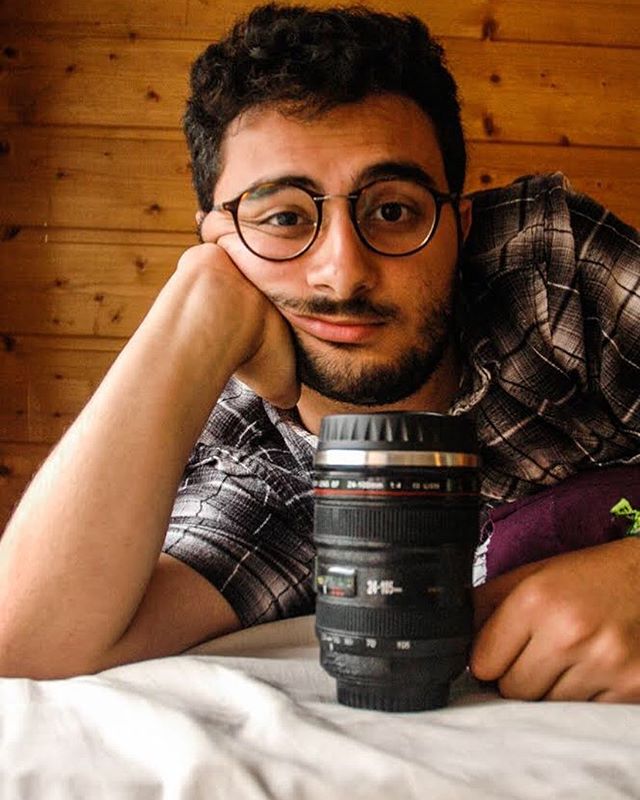#Բռնության_ձայնը (Brnutian Dzayne), roughly translated to “the voice of violence,” has been the loudest, most explosive hashtag in the Armenian world for the past 24 hours. “You might call this an Armenian #MeToo,” tweeted Karena Avedissian, a lecturer at the American University of Armenia. “Whatever it is, these women are bravely shining daylight on contradictions of what Armenian families are ‘supposed’ to be. They’re reassessing, in a very public & unflinching way, the role of parents, elders, men & of children in society.”
On June 29, hetq.am, a local investigative journalism outlet, published a story following the experiences faced by Eva—a Czech girl who lived in Armenia for a year. The story, titled “The Hair is To Blame” (original: «Մազերն են մեղաւոր»), is gruesomely detailed, tackling some of the many attempts of rape and sexual assault she was lucky enough to avoid and escape in Armenia. The story went viral, but it didn’t blow up until it indirectly gave birth to #բռնության_ձայնը through the Facebook post of a woman named Lucy Kocharyan.
What followed was unprecedented. Both men and women, people of both urban and rural settings, of conservative or liberal values, and with stories from their infancy, teenage years and adulthood, came flooding into Kocharyan’s Facebook Messenger inbox, often in explicit detail. Kocharyan, on the night of July 2, started anonymously posting all of the stories she had received, all revolving around the same plot of non-consented sexual relations.
By noon the following day, she announced that she will be giving interviews to CivilNet and H1, and that her inbox had been flooded with messages. She had around 100 unopened private messages: stories of assault, trauma and years of internal silence and suffering. The number of messages doubled by approximately 8 p.m. local time. Each story post of a sexual assault victim has garnered at least 450 reactions on Facebook and dozens of comments. Some of the comments include stories of some who chose not to hide their identities, while others gasp at the unsafe environment they would’ve usually called their comfort of home. Some, as expected, accused the stories of being merely allegations and fakes.
When asked for comments on the movement on Twitter, Zaruhi Batoyan, the Minister of Labor & Social Affairs of Armenia, responded with the following: “Speaking up about sexual harassment is one of the hardest challenges women face. And this campaign is a continuation of the past efforts of @SACC_Yerevan. [Sexual Assault Crisis Center of Yerevan]”
One might ask how this could reflect on the Armenian Diaspora. Arev Papazian, an anthropology professor at the American University of Beirut who was born and raised in Lebanon, shared her opinion: “This is a perfect example to show people that, as much as one would think that things like sexual assault and gender-based violence don’t happen in their surroundings, they might be shocked to find out that, in fact, they do,” Papazian said. “We might not know about them because those topics have become taboos in our communities, we don’t want to talk about them, believing that people in our collectivist communities care for each other, protect each other, and no one would dare harm a girl or a boy of their own community or family. But unfortunately, that is not always the case. We should follow those [«#Բռնության_ձայնը»] footsteps, and start by putting issues of gender equality on the agenda of diaspora community reforms,” she added.
In Dec. 2017, the Armenian parliament adopted a law against domestic violence, but many local and international human rights organizations have criticized it as non-effective. Human Rights Watch, for instance, interviewed 12 Armenian female victims of household abuse and almost all were ignored when they sought help from the state, although all of the incidents had taken place after the adoption of the law.



As everyone esle, I also spend lots of time in the social media and when I saw the online movement MeToo I thought that it is something that Armenia terribly lacked. Unfortunately, the rate of domestic violence is so high in Armenia that there was a need to adopt a separate law in 2017, but as we saw later even that did not provide much help. The law enshrined a legal and institutional basis for preventing domestic violence and protecting victims. It was to provide the necessary psychological, legal, social support to those subjected to violence, as well as, where appropriate, temporary financial support. It seems to me that nowadays Armenian women became stronger, as just a year ago everyone refused to speak about domestic violence or sexual abuse that they unfortunately faced. Armenian women kept silence as they were afraid to be blamed, they felt ashamed. I am very happy that girls started Brnutian Dzayne movement as I am sure that there are many girls who are relating these stories and maybe one day they will also have the courage to tell their own stories.